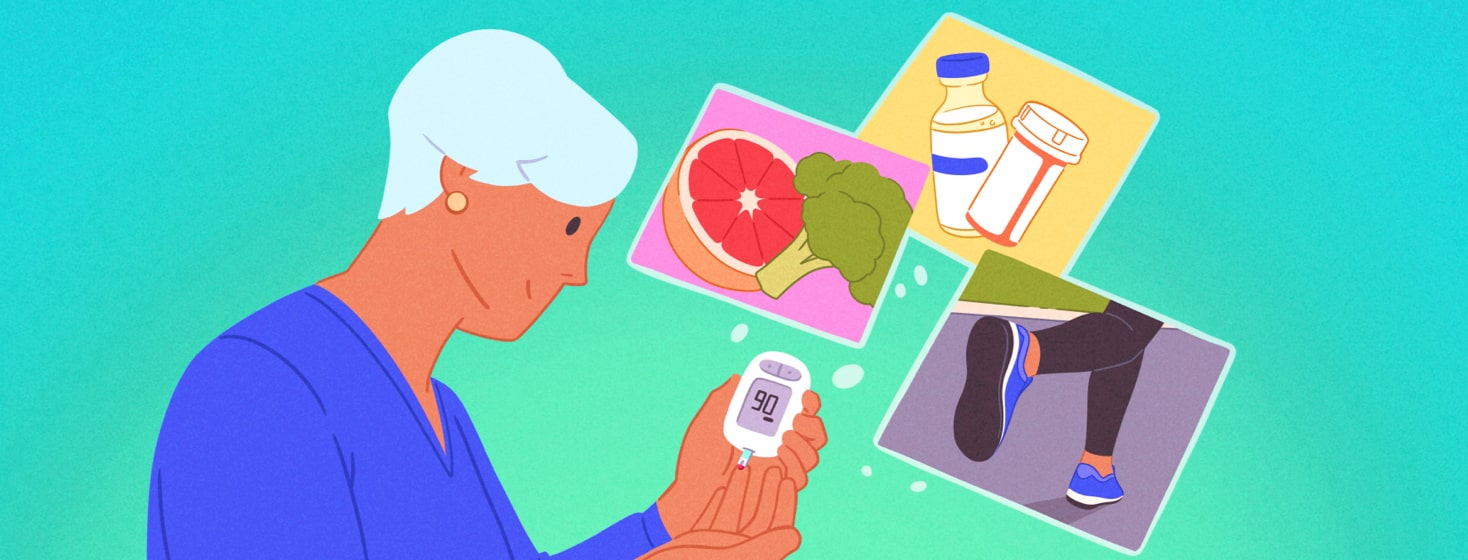Chronic Kidney Disease and Type 2 Diabetes
Diabetes is the leading cause of chronic kidney disease (CKD). In the United States, more than 29 million people have diabetes. And about 1 out of 3 people with diabetes has chronic kidney disease, also called diabetic kidney disease.1-3
While CKD is very common in people with diabetes, it is often undiagnosed. CKD can be prevented in people with diabetes, but only if measures to protect the kidneys are taken early enough.1-3
Start a Forum
What is diabetes?
Diabetes is a disease that happens when the body does not produce enough insulin to control blood sugar (blood glucose). There are 2 types of diabetes: type 1 and type 2.1
Type 2 diabetes is much more common than type 1, accounting for about 90 to 95 percent of all cases. Certain racial groups – such as Black and Hispanic people – are at a higher risk of developing type 2 diabetes. Here are other common risk factors for type 2 diabetes:1
- Over age 40
- Over a healthy weight
- Family history of diabetes
- Prior history of diabetes during pregnancy (gestational diabetes)
Both type 1 and type 2 diabetes can cause chronic kidney disease.1
How does diabetes affect the kidneys?
When your blood sugar is high – as it is if you have type 2 diabetes – it damages the small blood vessels throughout the body. This includes the blood vessels in the kidneys. Diabetes also raises blood pressure. When your blood pressure is high, it puts more strain on the kidneys.1-3
The kidneys filter waste and water out of the blood, making urine that leaves the body. But when the kidneys are damaged, they cannot do their jobs well. This can lead to a buildup of waste in the body, which can be very dangerous.1-3
If kidneys are not functioning at all, this is called end-stage kidney disease (ESKD). People with ESKD require dialysis or a kidney transplant to survive. Dialysis is a procedure in which a machine does the work of the kidneys.3
Signs of CKD in people with type 2 diabetes
Diabetic kidney disease usually develops slowly over time. Symptoms can go unnoticed until kidney damage is advanced. You will not know if you have CKD unless your doctor checks you for it. This is done with blood and urine tests. These tests check to see how well your kidneys are filtering your blood.2,3
The following symptoms are warning signs that your kidney function may be getting worse:1,2
- Protein in your urine (this is detected with a urine test)
- Abnormal blood tests
- High blood pressure
- Swelling in your legs
- Leg cramps
- The need to urinate more often, especially at night
- Nausea and vomiting
- Increased itchiness
Featured Forum
View all responsesKeeping your kidneys healthy
If you have diabetes, you can take several steps to protect your kidneys.
Control blood pressure
To protect your kidneys, one of the most important things you can do is to control your blood pressure. According to the National Kidney Foundation, if you have diabetes, you should aim for your blood pressure to be lower than 130/80 (unless your doctor recommends a different goal).1-3
If your doctor finds that you have high blood pressure, they may recommend that you take blood pressure medicine. Medicines that help control blood pressure include angiotensin converting enzyme (ACE) inhibitors and the angiotensin-2 receptor blockers (ARBs).1
Control blood glucose
Controlling blood glucose levels is another critical part of keeping your kidneys healthy. A blood test called an A1C is used to check blood glucose levels. The A1C reports your average levels of blood glucose in the past 3 months.2
People with diabetes should aim for an A1C below 7 percent. But this might differ depending on your specific case. Ask your doctor what your A1C goal should be.2
Take other protective measures
Here are several other ways to protect your kidneys:1-3
- Control your cholesterol levels.
- Take your diabetes medicines as prescribed by your doctor.
- If your doctor says you are over a healthy weight, take steps to lose weight.
- Reduce how much protein and sodium you eat.
- Avoid medicines that damage your kidneys.
- Eat a healthy diet rich in fruits and vegetables.
- Get regular physical activity.
- Do not smoke.
Getting your kidneys checked
If you have diabetes, get your kidneys checked regularly by your doctor. If you have type 2 diabetes or if you have had type 1 diabetes for longer than 5 years, get checked for CKD once a year.2

Join the conversation